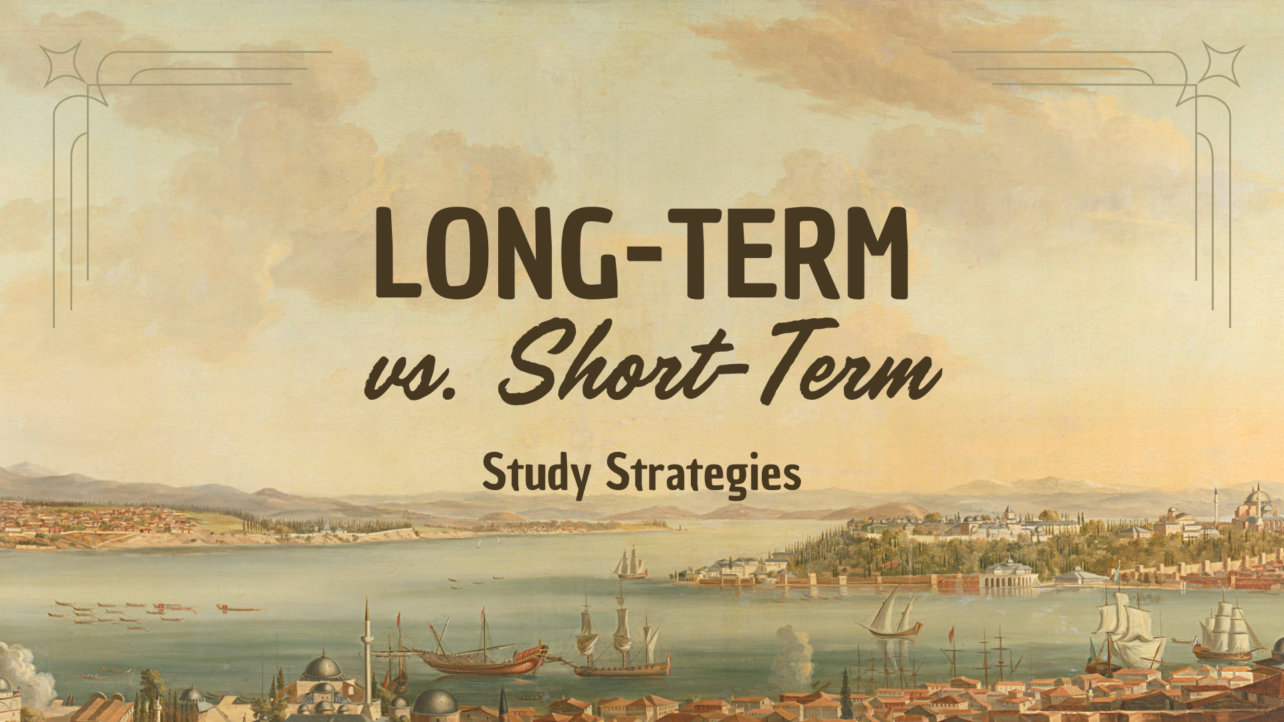Long-term and short-term study strategies are two distinct approaches to learning that can significantly impact a student’s academic performance. Long-term strategies focus on consistent, spaced-out learning over extended periods, while short-term strategies often involve intensive, concentrated efforts closer to exams or deadlines. But why? The effectiveness of these strategies lies in how our brains process and retain information, the nature of different subjects, and the individual learning styles of students.
The Science Behind Long-Term Study Strategies
Long-term study strategies are rooted in the concept of distributed practice, also known as spaced repetition. This approach involves spreading out study sessions over time, allowing for regular review and reinforcement of material. The effectiveness of this method is supported by numerous studies in cognitive psychology.
One landmark study by Ebbinghaus (1885) introduced the “forgetting curve,” which demonstrates how information is lost over time when there’s no attempt to actively recall it. Subsequent research has shown that spaced repetition can significantly flatten this curve, leading to better long-term retention.
A more recent meta-analysis by Cepeda et al. (2006) examined 317 experiments on spacing effects. They found that distributed practice led to superior final test performance compared to massed practice (cramming) across various retention intervals, types of material, and types of tests.
Benefits of Long-Term Study Strategies:
- Enhanced long-term retention
- Deeper understanding of complex concepts
- Reduced stress and anxiety
- Improved critical thinking skills
- Better preparation for cumulative exams
Implementing Long-Term Study Strategies:
To effectively use long-term study strategies, consider the following techniques:
- Create a study schedule that spans the entire semester
- Use active recall methods like flashcards or practice tests
- Implement the Pomodoro Technique for focused study sessions
- Regularly review and summarize previous material
- Engage in group discussions or teach concepts to others
The Role of Short-Term Study Strategies
While long-term strategies are generally more effective for deep learning and retention, short-term strategies still have their place in a student’s toolkit. These methods can be particularly useful for quick recall of specific information or when facing tight deadlines.
Short-term strategies often involve techniques like cramming, mnemonic devices, and intensive review sessions. While these methods may lead to quick gains in performance, their effects are typically short-lived.
A study by Rohrer and Pashler (2007) found that while massed practice (cramming) can lead to better performance on immediate tests, spaced practice consistently outperforms it on delayed tests. This suggests that short-term strategies may be useful for passing an imminent exam but are less effective for long-term learning.
When Short-Term Strategies Can Be Useful:
- Reviewing key points before an exam
- Memorizing specific facts or formulas
- Preparing for pop quizzes or unexpected assessments
- Managing multiple deadlines in a short timeframe
- Refreshing knowledge on previously learned material
Balancing Long-Term and Short-Term Strategies
The most effective approach to studying often involves a combination of both long-term and short-term strategies. By building a strong foundation through consistent, spaced learning and supplementing with targeted short-term techniques when needed, students can optimize their academic performance.
A personal anecdote: As a student, I once relied heavily on cramming before exams. While I could perform well on tests, I found myself struggling to recall information just weeks later. It wasn’t until I adopted a more balanced approach, incorporating regular review sessions and active recall techniques, that I truly began to excel in my studies and retain knowledge long-term.
Tailoring Strategies to Individual Needs
It’s crucial to recognize that different subjects and learning objectives may require varying approaches. For instance:
- Mathematics and sciences often benefit from consistent practice and problem-solving over time.
- Language learning typically requires regular exposure and usage for effective acquisition.
- History and literature may involve a combination of long-term reading and analysis with short-term review of key facts and themes.
Additionally, individual learning styles and preferences play a role in determining the most effective study strategies. Some students may find visual aids more helpful, while others might prefer auditory learning or kinesthetic approaches.
Conclusion
In the battle of long-term vs. short-term study strategies, the clear winner for deep, lasting learning is the long-term approach. However, a nuanced understanding of both methods and their appropriate applications can lead to optimal academic success. By embracing long-term strategies as the foundation of your study habits and supplementing with short-term techniques when necessary, you can unlock your full academic potential and develop lifelong learning skills.
Remember, the goal of education extends beyond simply passing exams. It’s about cultivating knowledge, critical thinking skills, and a genuine love for learning that will serve you well beyond your academic years.
References
- Ebbinghaus, H. (1885). Über das Gedächtnis: Untersuchungen zur experimentellen Psychologie. Duncker & Humblot.
- Cepeda, N. J., Pashler, H., Vul, E., Wixted, J. T., & Rohrer, D. (2006). Distributed practice in verbal recall tasks: A review and quantitative synthesis. Psychological Bulletin, 132(3), 354-380.
- Rohrer, D., & Pashler, H. (2007). Increasing retention without increasing study time. Current Directions in Psychological Science, 16(4), 183-186.

No comments yet